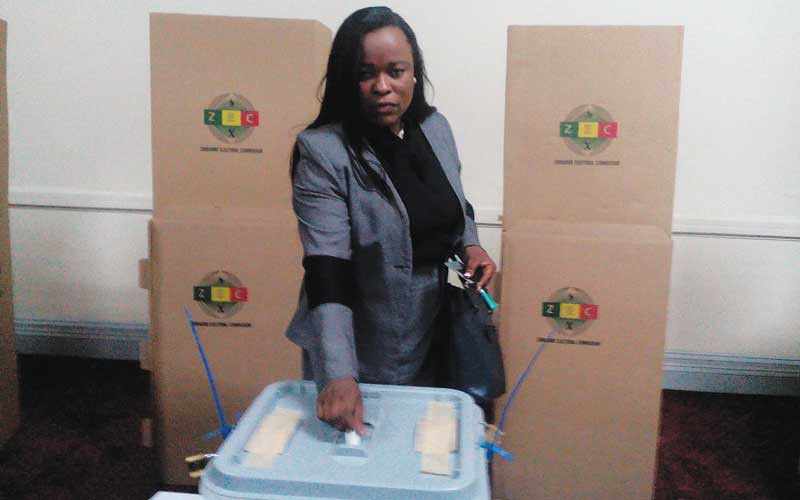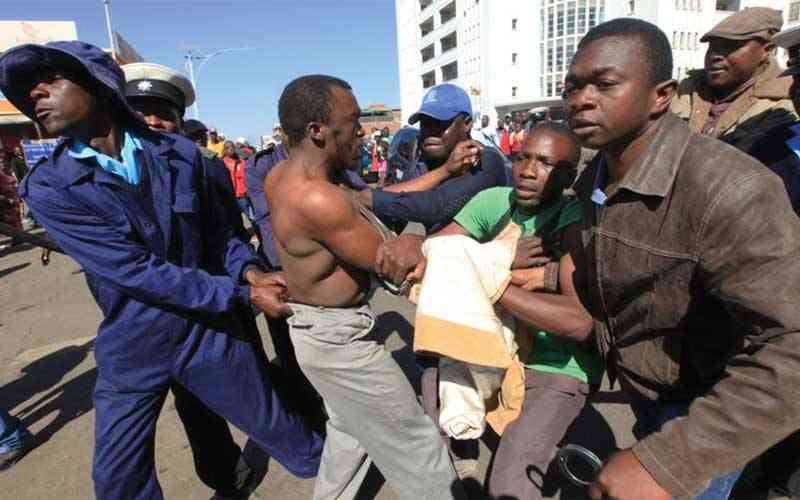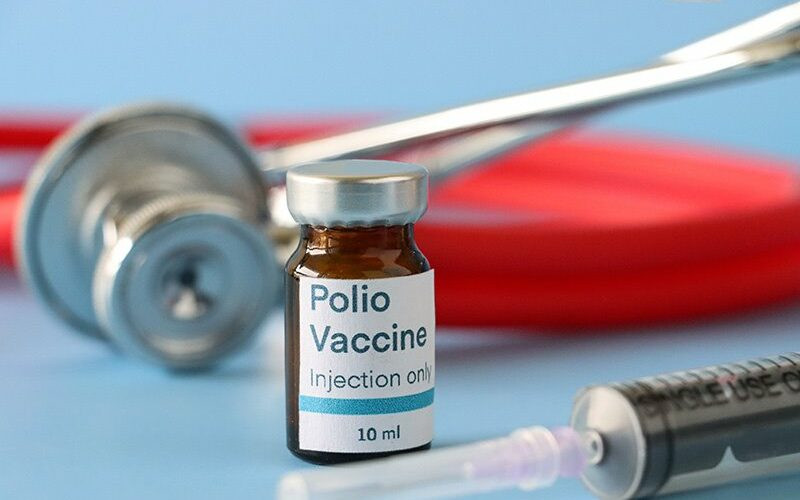
THE Crisis in Zimbabwe Coalition (CiZC), a conglomeration of 350 citizens’ organisations including the church, labour, women, youths, students, farmers, war veterans and the informal sector variously organised as private voluntary organisations (PVOs), non-governmental organisations, civil society organisations, community-based organisations, trusts and social movements, operating in Zimbabwe, joins the world in commemorating International Human Rights Day.
International Human Rights Day, which is commemorated on December 10 marks the adoption of the Universal Declaration of Human Rights (UDHR) by the United Nations (UN) General Assembly in 1948.
The UDHR lays out the “inalienable rights that everyone is entitled to as a human being regardless of race, colour, religion, sex, language, political or other opinion, national or sexual origin, property, birth or other status”.
This year’s International Human Rights Day is being commemorated under the theme Reducing Inequalities, Advancing Human Rights.
The theme links well with Article One of the UDHR which states that “All humans are born free and equal in dignity and rights”.
As the world commemorates International Human Rights Day, Crisis in Zimbabwe Coalition bemoans the failure by government to address marginalisation and uphold principles of equality and non-discrimination.
A toxic political environment coupled with high levels of corruption are some of the major factors contributing towards inequality, with government discriminating citizens along political party lines.
Despite claims of a new dispensation, President Emmerson Mnangagwa’s government has a tainted human rights record and as such, has failed to put human rights at the centre of its development initiatives.
- Chamisa under fire over US$120K donation
- Mavhunga puts DeMbare into Chibuku quarterfinals
- Pension funds bet on Cabora Bassa oilfields
- Councils defy govt fire tender directive
Keep Reading
Draconian laws, judicial capture, arbitrary arrests, persecution of civil society actors and the ongoing arbitrary constitutional amendments continue to reverse the democratic gains attained by the adoption of a new Constitution in 2013.
Opposition activists that include Makomborero Haruzivishe continue to wallow in prison on trumped up charges and the government continues to respond with brute force to genuine calls for reform.
More worrying is the fact that Mnangagwa and senior government officials are on record openly declaring war against Zimbabwe’s civil society.
The church, labour, war veterans, students and women movements continue to be vilified for asking the government to uphold their socio-economic, civil and political rights.
Government has gone on to enact a raft of laws to further curtail the citizens’ enjoyment of their fundamental rights and freedoms with the Cyber Security and Data Protection Act and the proposed PVO Amendment Bill being the latest in this quest.
As part of efforts to address inequality and advance human rights, CiZC implores government to renew the social contract with citizens and more importantly, exhibit political will in as far as upholding citizens fundamental rights is concerned.
Fundamentally, we ask government to respect the 2013 Constitution — to implement and not amputate the Constitution of the republic.
Upholding principles of transparency and accountability is critical in addressing inequality and advancing citizens’ rights. –CiZC
Say no to corruption
ON December 9, 2021, Vendors Initiative for Social and Economic Transformation (Viset) joined the rest of the world in marking International Anti-Corruption Day which was running under the theme Your Right, Your Role: Say No To Corruption.
This day has been celebrated annually since 2003 when the United Nations Convention against Corruption was passed with the aim of raising public awareness on the detrimental effects of corruption.
Corruption is now a societal ill globally that brings with it increased inequality and having a derailing influence on attainment of sustainable development goals.
The COVID-19 pandemic, being a global health emergency, caught many governments flat-footed and their responses in as far as purchasing of medical supplies was concerned, saw briefcase companies fronted by cronies of government officials being awarded tenders to supply goods at over inflated prices.
In Zimbabwe, one of such instances claimed the scalp of the then Health and Child Welfare minister. It is regrettable, however, that the corruption did not end there, but continued in the social protection intervention where relief funds for the vulnerable run through what was termed the harmonised cash transfer system that saw millions of dollars looted as revealed by the Office of the Auditor-General in August 2021.
With new strains of COVID-19 continuing to manifest, fears are real that the grounds for corruption remain fertile should no firm action be taken against those found in the wrong.
The Constitution established a body to fight corruption called the Zimbabwe Anti-Corruption Committee (Zacc).
However, to date, it has not seen any meaningful prosecutions on acts of corruption. It is Viset’s contention that if there is to be a firm commitment to fighting corruption, then there must be full autonomy granted to bodies such as Zacc and the National Prosecuting Authority.
If corruption is continually allowed to flourish unchecked, it leads to the breakdown of social services as public funds will be diverted from providing health, education and social welfare for citizens, to the hands of the connected few.
It is not lost on us that there are also unsavoury corrupt practices in the private sector such as tax evasion and externalisation through transfer pricing and we call this out unreservedly.
At local government level, we continue to witness the detrimental effects of corruption on service delivery, as seen in the case of Harare City Council, where there are only two substantive directors running council, with the others being suspended on various allegations of corruption.
The societal scourge of corruption also manifests itself in the everyday life of a vendor as one has to pay extra costs for almost everything, from being coerced to pay bribes for market allocations, to sometimes having to bribe policing authorities in order to evade arrests.
It thus becomes incumbent upon government to ensure there are measures to swiftly prosecute acts of corruption and put in safeguards such as legislation of measures such as the Whistleblowers Act if this fight is to be won. –Viset











